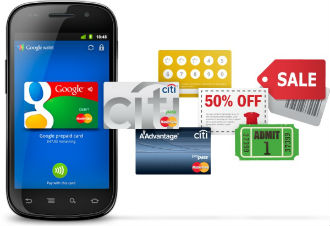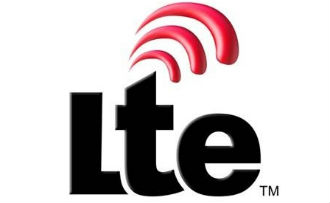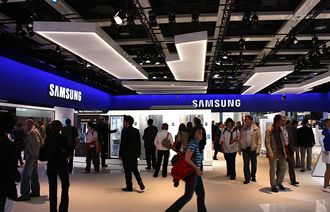 EE has released its results for the first quarter of 2013 and it is apparently seeing an uptake in 4G use. The 4G user base reached 318,000 five months after the service was introduced. EE says it is on track to meet its target of over a million customers by the end of the year.
EE has released its results for the first quarter of 2013 and it is apparently seeing an uptake in 4G use. The 4G user base reached 318,000 five months after the service was introduced. EE says it is on track to meet its target of over a million customers by the end of the year.
Tag: lte
M-commerce to double in next 12 months
 Mobile shopping is the new black and a recent survey carried out by Conlumino indicates that it will continue to grow at an impressive rate for the foreseeable future. M-commerce has already risen 55 percent compared to a year ago and it is now estimated that it will grow another 115 percent over the next 12 months.
Mobile shopping is the new black and a recent survey carried out by Conlumino indicates that it will continue to grow at an impressive rate for the foreseeable future. M-commerce has already risen 55 percent compared to a year ago and it is now estimated that it will grow another 115 percent over the next 12 months.
LTE smartphone shipments surge 1100% in Q4 2012
 The smartphone market is slowly maturing and overall handset sales, including feature phones, remained flat in the fourth quarter of 2012. However, sales of LTE enabled devices skyrocketed in developed markets.
The smartphone market is slowly maturing and overall handset sales, including feature phones, remained flat in the fourth quarter of 2012. However, sales of LTE enabled devices skyrocketed in developed markets.
According to Strategy Analytics, shipments of 4G smartphones grew by 1100 per cent in Q4 2012.
The surge was led by Apple and Samsung, while at the same time shipments of 3G phones slowed. The trend coincides with an aggressive carrier push in Europe, including the UK.
Just a year ago, LTE connectivity was reserved for high end smartphones, but the mobile landscape is changing and even cheaper SoCs now offer integrated LTE. Qualcomm leads the way with last year’s Krait-based Snapdragon S4 chips, along with new “century series” Snapdragons coming on line right now. Apple already has LTE in current generation products, although older 4-series iPhones lack LTE support. By the end of the year Nvidia will introduce the Tegra 4i, its first SoC with integrated LTE, and Intel also plans to deliver LTE in its next generation mobile chips, coming in early 2014.
In terms of volume, smartphones are expected to overtake feature phones this year, which means plenty of mid-range LTE smartphones will find their way to consumers’ pockets. Although LTE is expected to be the fastest growing WWAN technology in history, it is still off to a slow start in many markets, including Britain. According to its last earnings report, Everything Everywhere didn’t add many 4G users since it launched its 4GEE network. However, things are picking up and other carriers will enter the market later this year, although Ofcom failed to raise plenty of cash on its 4G spectrum auction.
Smartphones will outpace feature phones in 2013
 Smartphones have become so affordable and readily available in all markets that they are finally expected to outsell feature phones this year. It is not a “nobody expects the Spanish Inquisition” sort of thing, since smartphone shipments have gone from strength to strength for years.
Smartphones have become so affordable and readily available in all markets that they are finally expected to outsell feature phones this year. It is not a “nobody expects the Spanish Inquisition” sort of thing, since smartphone shipments have gone from strength to strength for years.
IDC’s latest report forecasts that 918.6 million smartphones will be shipped this year, accounting for 50.1 percent of all mobile phone shipments.
The research outfit says it based its predictions on falling prices of smartphones and increased consumer interest, which probably has something to do with the fact that smartphones are getting dirt cheap. With 4G services being rolled out in major markets, IDC expects smartphone shipments to hit 1.5 billion units by 2017.
China is expected to be the biggest market in 2013, as IDC estimates it will gobble up 301.2 million smartphones. The US ranks second with 137.5 million, way ahead of the UK and Japan, tied in third place with 35 million, reports The Next Web.
The BRIC march continues in fifth and sixth spot, which will go to Brazil and India respectively. However, by 2017 India will rank third and consume 155.6 million smartphones. Brazil will see plenty of growth as well, going from 28.9 million to 66.3 million units by 2017.
In other words, smartphone makers will have to start designing more devices with emerging markets in mind, which means we might see a bit more emphasis on value moving forward.
Posh hotels gouge guests for Wi-Fi
 It is no secret that free Wi-Fi is good for business, so it is available practically everywhere, from pubs and service stations, to public institutions.
It is no secret that free Wi-Fi is good for business, so it is available practically everywhere, from pubs and service stations, to public institutions.
However, it is still not available in most hotels and according to a survey carried out by travel site Gogobot, posh hotels are still charging an arm and a leg for a bit of Wi-Fi.
On the face of it, there is nothing wrong with charging a few pounds for unlimited Wi-Fi, but the survey also confirms another angle – the pricier the hotel, the pricier the Wi-Fi. It is cheeky, to say the least.
Gogobot’s survey of UK hotels revealed that some establishments, such as the Hilton, charge as much as £15 per day. Smaller boutique or independent hotels are cheaper and some offer free Wi-Fi, while others charge up to £5 and £8 per day. It doesn’t sound like too much, but the cost can quickly add up in a matter of days and it is obvious that frequent travellers (or their employers) could end up wasting hundreds of pounds on overpriced Wi-Fi over the course of a single year.
What’s more, the survey found that Wi-Fi access was at times spotty and unreliable, reports Mashable. Quality remains a problem, no matter how much you pay.
“There is no correlation between the amount you pay and the quality you get,” Kelly Lees, general manager in Europe said. She argued that tetherless travel is here to stay and the days of connecting to the internet using Ethernet in hotels are “long gone”.
However, things could be about to change. Lees says Wi-Fi prices are starting to affect hotel ratings. Travellers who believe they were ripped off on Wi-Fi will not give hotels a five-star rating. In addition, the availability of low cost 3G/4G services could make hotel Wi-Fi as obsolete as Ethernet, unless hotels finally realize that they stand to gain more by offering free Wi-Fi rather than making their guests pay through the nose for every byte consumed on business trips.
4G adoption rates in UK remain sluggish
 Everything Everywhere launched Britain’s first 4G network in late October last year and it seemed like it was off to a modest start. However, it now appears that the number of early adopters was remarkably low.
Everything Everywhere launched Britain’s first 4G network in late October last year and it seemed like it was off to a modest start. However, it now appears that the number of early adopters was remarkably low.
EE shed more light on the number of customers in its quarterly earnings report, but it did not break down the figures to distinguish between 3G and 4G users. In spite of that, the numbers look bleak. EE added just 201,000 postpaid 3G/4G customers in Q4 2012, down from 250,000 in Q3 and 313,000 in Q4 2011.
Samsung flattens Apple in smartphone helter-skelter
 A report suggests Apple will see its sales of smartphones peak this year and from then on will pursue the seemingly unstoppable rise and rise of Samsung.
A report suggests Apple will see its sales of smartphones peak this year and from then on will pursue the seemingly unstoppable rise and rise of Samsung.
According to ABI Research, smartphones will represent 50 percent of all handset sales in 2013, and by 2018 2.4 billion smartphones shipping will represent 69 percent of all handsets. By then, LTE handsets will represent 50 percent of smartphone shipments and 35 percent of all handsts.
Michael Morgan, a senior analyst at ABI, said: “Apple will be chasing Samsung’s technology, software device leadership in 2013 through the foreseeable future.” He said that the Korean chaebol grew its smartphone market share from eight percent to over 30 percent last year. Apple will remain flat until 2018, he predicted. While Samsung is relying on Google Android for 90 percent of its smartphone shipments, ABI thinks that it will use other OSes including Bada, Tizen and Windows Phone.
Even though many handsets will support LTE in the future, people may not have access to LTE networks. ABI thinks that LTE will be the fastest growing WWAN in history.
Samsung has plenty of advantages over Apple – it is a vertically integrated company and is able to keep costs down by providing essential components from its own manufacturing arsenals.





